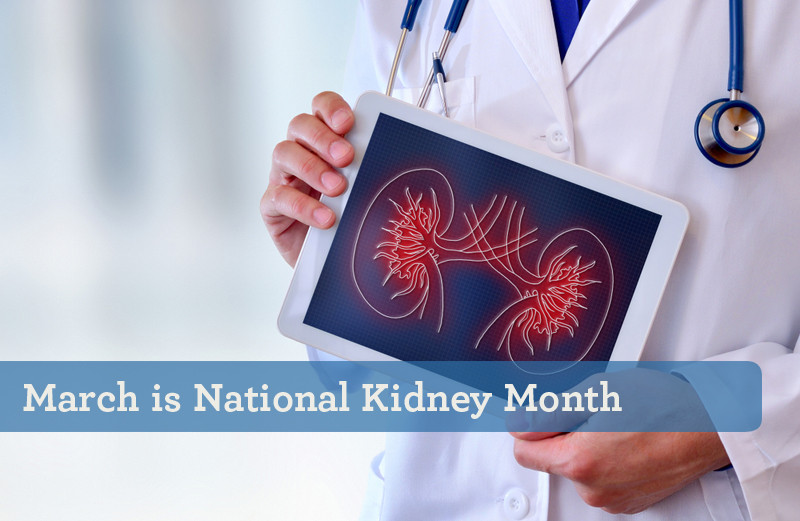Since March is National Kidney Month, there’s no better time to talk about what you can do to care for your kidneys. These two small organs are vital in a number of ways, and when they don’t function well it can have a major impact on overall health. Here’s brief overview of what the kidneys do and steps you can take to keep them healthy.
How do the kidneys support overall health?
The kidneys are two bean-shaped organs located in the middle of the back on either side of the spine. Their primary function is to filter the blood—keeping needed nutrients within the body and discarding toxins and waste through the urine. They also perform several other critical functions, including:
- regulating fluid levels within the body;
- regulating blood pressure;
- activating Vitamin D to support bone health;
- supporting red blood cell production; and
- maintaining the balance of electrolytes.
What are the risk factors for developing kidney disease?
The normal aging process is accompanied by a small amount of kidney function loss, which is usually not an issue unless other diseases complicate the picture. In fact, a person can live normally with only one kidney, if needed. However, for other individuals, chronic kidney disease (CKD)—in which the kidneys slowly and progressively lose function—can be caused by a variety of factors, especially if a person is at high risk. The National Kidney Foundation (NKF) cites the four main risk factors for CKD as:
- A personal or family history of diabetes
- A personal or family history of high blood pressure
- A personal or family history of cardiovascular disease
- A family history of kidney disease, diabetes, or high blood pressure
Additional risk factors cited by NKF include:
- African-American, Native American, Hispanic, Asian, or Pacific Islander heritage
- Increased age—60 years old and older
- Increased weight—classified as obese
- Using non-steroidal anti-inflammatory drugs (NSAIDs) for prolonged periods
- Having an autoimmune disorder
- Having a history of chronic urinary tract infections and/or kidney stones
As the NKF notes, chronic kidney disease can be very serious. When the kidneys don’t function normally, this can create a cascade effect in which one or more systems become involved, potentially resulting in cardiovascular disease, high blood pressure, weakened bones, nerve damage, kidney failure, anemia, and even death.
What habits help to keep kidneys healthy?
One of the most important things you can do to take care of your kidneys is to keep your blood pressure under control. Doing so includes practicing healthy habits like maintaining a healthy weight, eating a balanced diet that doesn’t include excess salt, getting plenty of exercise, quitting smoking, staying hydrated, and drinking alcohol only in moderation.
Since kidney disease can crop up slowly and without warning, it’s important to monitor your kidney function on a regular basis through a few simple tests that your doctor can order. This is especially true for those who are at high risk.
You can learn more about keeping your kidneys healthy through the National Kidney Foundation’s Keep Healthy program, or by scheduling an appointment with one of our doctors by using our CONTACT FORM or calling us at (616) 392-1816.


